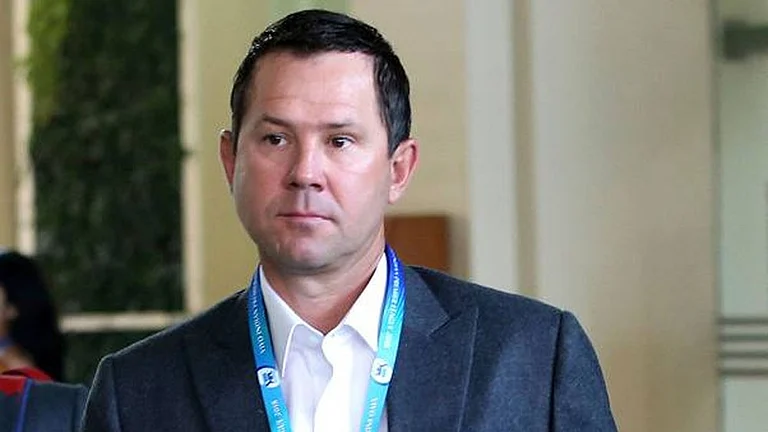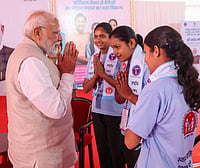When an eight-year-old girl was brought to Dr. Sumeet Arora, a renowned paediatric and adolescent endocrinologist, with complaints of rapid, laboured breathing with a history of excessive urination and unexplained weight loss, the experienced physician immediately sensed that something was seriously wrong.
“Her blood sugar level was found to be alarmingly high — 500 mg/dl — and further investigations confirmed Diabetic Ketoacidosis (DKA), a life-threatening complication of Type 1 Diabetes (T1D),” said Dr. Arora. The child was swiftly admitted to the Paediatric Intensive Care Unit (PICU) and treated with intravenous insulin and fluids.
For Dr. Arora, senior consultant with Gurgaon-based Artemis Hospitals, and Arbor Multispecialty Clinic, this was not an isolated incident. “This is not such a rare story — it is, in fact, a very typical way Type 1 Diabetes presents in children,” she said, giving insight on this chronic autoimmune disease, also known as juvenile diabetes.
“Most parents are unaware and unsuspecting of such a diagnosis during their first visit. The news often brings with it a wave of fear, confusion and misconceptions that can deeply affect both the child and the family,” said Dr Arora.
To make the matter worse, children or newly diagnosed individuals often fall prey to wrong advice — losing precious time, money, and resources while facing a higher risk of complications, she observed.
Dr. Arora explained that unlike Type 2 Diabetes, which is linked to lifestyle factors and obesity, T1D results from an absolute lack of insulin.
“Type 1 Diabetes is an autoimmune condition in which the body’s immune system mistakenly destroys the insulin-producing cells of the pancreas. Once nearly 80 to 90 per cent of these cells are damaged, the symptoms — frequent urination, excessive thirst, fatigue, and unexplained weight loss — start to appear. For a person with Type 1 Diabetes, insulin is as vital as air or water,” Dr. Arora emphasised.
Patients require multiple daily insulin doses — usually five to six injections a day — combining rapid-acting insulin before meals with long-acting insulin to maintain glucose control between them.
Despite decades of medical advancement, cultural myths and unverified remedies still persist, reiterates the medico. “Families are often encouraged by well-meaning relatives to rely on fenugreek seeds or bitter gourd juice, or to completely avoid foods like rice and bananas,” Dr. Arora said.
“Dietary restrictions based on myths can be dangerous,” she cautioned. “Children with Type 1 Diabetes can eat a balanced diet just like any other child, as long as their insulin is adjusted appropriately. What should be avoided are sugary drinks and heavily processed foods — something even healthy individuals should refrain from.”
She also underlined the importance of regular physical activity, recommending at least 45 minutes of moderate to vigorous exercise daily to maintain glucose control and overall well-being.
Expressing concern over the lack of awareness and preparedness in schools, Dr. Arora recalled the case of a seven-year-old boy with T1D who was denied insulin during school hours. “The school authorities cited a lack of medical staff and liability concerns, refusing to allow insulin injections during lunch break,” she said.
“Children spend most of their day in school. Denying essential medication like insulin is both unsafe and discriminatory,” she warned.
Given that India continues to grapple with acute shortage of trained school nurses and medical officers across both government and private institutions, stronger policy-level coordination between the Ministries of Education and Health is crucial to ensure every school is adequately equipped, emphasised Dr. Arora.
In fact, there has also been a growing demand to establish dedicated Type-1 diabetes clinics in all district hospitals across India. The initiative seeks to ensure specialized care, promote early diagnosis, and raise awareness about this chronic condition which is on increase.
Echoing her fraternity's views, Dr Arora asserted that insulin is a birthright for children, and it is the duty of the government, organisation, and citizen to make it available for all T1DM patients.
While genetic predisposition plays a significant role, some environmental triggers also contribute to the pathogenesis of Type 1 diabetes. India accounts for most of the children with T1D in South-East Asia. According to the 6th edition of the International Diabetes Federation diabetes atlas, India has 3 new cases of T1D/100,000 children of 0–14 years.

Dr. Sumeet Arora, MD Ped, Fellow Paediatric Endocrinology (New York) American Board Certified. Senior Consultant Artemis Hospitals and Arbor Clinic, Gurgaon







_.jpg?auto=format%2Ccompress&fit=max&format=webp&w=768&dpr=1.0)















